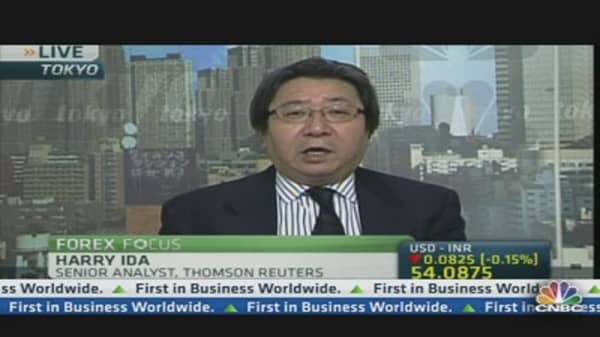Despite the bounce, analysts said the euro looked vulnerable as expectations grew that the ECB may soon lower interest rates.
Weidmann's comments "by themselves are not new," said Michael Sneyd, currency strategist at BNP Paribas in London. "However, the fact that the comments were made by the most hawkish member of the Governing Council suggests the ECB is quite close to delivering a refi rate cut."
Some analysts were skeptical about how negative this would be for the euro. Unlike Japan and the United States, the ECB is not printing money via quantitative easing, which tends to weaken the currency.
Some also said a rate cut could be positive for the euro zone growth outlook.
Incoming Bank of England Governor Mark Carney said the Fed's system of steering investors with numerical thresholds for unemployment and inflation was helpful as markets begin to contemplate the end of massive central bank stimulus for economies.
"I think the value of the Fed's ... guidance helps a lot with this," Carney said at a Reuters Newsmaker event on Thursday. Carney is currently governor at the Bank of Canada.
The euro also looked vulnerable to euro zone political risks.
Italy's parliament failed to elect a new state president in its first vote on Thursday, with deep splits in the center left torpedoing a quick victory for its official candidate, Franco Marini.
The dollar rose 0.13 percent to 98.22 yen, with traders citing support around 97.60 yen. Analysts said the yen looked set to weaken further. The dollar hit a four-year high of 99.94 yen last week, stalling just short of option barriers at the psychologically key 100 yen threshold.
(Read More: Foreign Appetite for Japan Shares Highest Since 2005)
"This is a longer-term move and therefore periods of correction are basically buying opportunities, and that's probably what we are in at the moment," said Steve Barrow, head of G-10 currency research at Standard Bank, who said 110 yen was a likely target for this year.
The Bank of Japan's radical monetary policy overhaul will pump about $1.4 trillion into the economy in less than two years via a hefty bond-buying scheme that is expected to drive Japanese investors to look overseas in search of better yields.
But weekly data from the Japanese Ministry of Finance showed Japanese investors actually selling their holdings of foreign bonds over the last week. Still, analysts said low returns and a weakening yen would eventually drive money out of the country.




